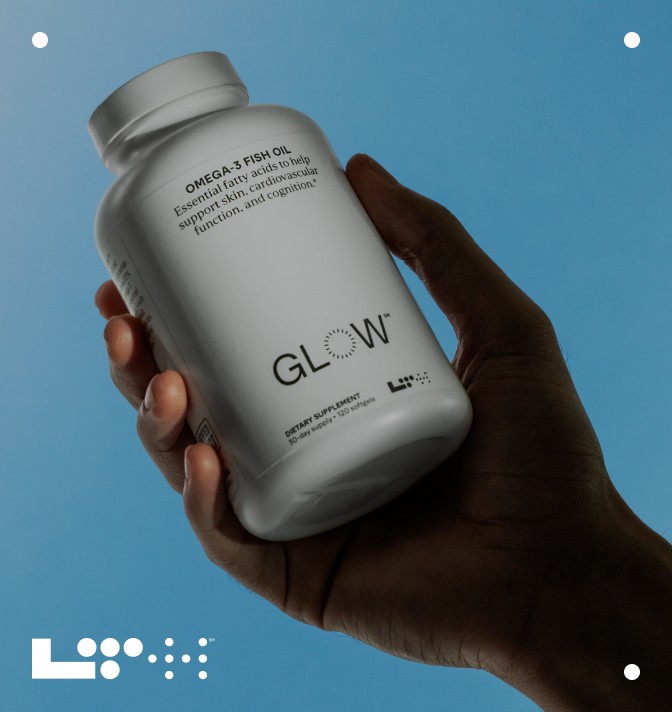If you’re concerned or have questions about supplements, you’re not alone. With the breadth of options available — not to mention the many claims that accompany them — there is a lot of confusion about how these health aids are overseen.
Dietary supplements are in fact regulated by multiple federal authorities, albeit differently than food or drugs, and there are many companies that meet and exceed the regulatory requirements for dietary supplements. Read on for details about regulation and the quality controls put in place by some manufacturers and retailers, including LTH
Who regulates dietary supplements?
Both the Food and Drug Administration (FDA) and the Federal Trade Commission (FTC) have regulatory authority over the dietary supplement industry.
The FDA oversees everything related to dietary supplement ingredients, their manufacturing, labeling, and adverse event reporting. The FTC regulates the types of product claims and marketing practices.
When necessary, both regulatory agencies are quick to partner with the Department of Justice (DOJ) and Securities Exchange Commission (SEC) on enforcement actions to protect consumers from misleading, unsafe, or unlawful business practices.
For example, in January 2020, based on “significant violations of current Good Manufacturing Practices,” the FDA conducted a nationwide recall of all lots of all supplements produced between January 2013 and November 2019 by ABH Nature and stocknutra.com and marketed under dozens of individual brands.
Since 2016, direct-sales supplement giant Herbalife has had to pay over $340 million to the federal government for various business violations, including a recent $123 million settlement over charges that the company bribed Chinese officials to pave the way for business growth in that market.
Similarly, the multi-level-marketing weight-loss supplement company ViSalus is facing a potential $925 million penalty over its unlawful automated telephone marketing practices.
And recently, dozens of companies have received warning letters from the FTC for fraudulent and misleading advertising messages related to dietary supplements and COVID-19.
Under-regulated or unregulated?
Under 1994’s Dietary Supplement Health and Education Act (DSHEA), the FDA holds the authority to establish, regulate, and enforce guidelines that the dietary supplement industry must abide by.
The DHSEA framework outlined several important elements for manufacturers and retailers:
- Defined “Dietary Supplement” as any (non-tobacco) consumable product that’s intended to supplement the diet and contains one or more vitamins, minerals, herbs, botanicals, or amino acids.
- Outlined the notification and review process for introduction of new dietary ingredients.
- Established current Good Manufacturing Practices (cGMP) requirements:
- Facility standards
- Personnel qualifications
- Production methods, quality controls, and record keeping
- Product identity, purity, potency, and labeling accuracy
- Created adulteration provisions specific to dietary supplements
The FDA is responsible for ensuring the safety of all prescription and over-the-counter drugs, cosmetics, medical devices, conventional food and beverage products, and dietary supplements.
For each of these industries, the FDA maintains guidelines and regulations for manufacturers and retailers to follow. Yet there are differences in how these regulations are applied for each industry.
Drugs and medical devices require FDA approval prior to being marketed to consumers. They have to prove they work for very specific conditions before being marketed or sold, which is critical to ensure safety and effectiveness of medicines and devices used in the prevention or treatment of medical conditions.
As expected, most of the FDA’s resources are dedicated to oversight and monitoring of prescription medications, over-the-counter drugs, and medical devices.
For food, cosmetics, and dietary supplements (which are considered a sub-category of food), there is no requirement for pre-market “approval” by the FDA. Manufacturers are required, however, to follow stringent guidelines and regulations. Failure to follow the regulations can trigger product recalls, fines, and even criminal charges.
In a way, the FDA’s oversight of supplements, food, and cosmetics is similar to how speed limits are enforced: Everyone knows there are limits, but unless the police catch you speeding, no one really knows. It’s reactive regulation, but it often still works.
Regulating so many industries with different operating standards is an enormous amount of work — and unfortunately, the FDA often cannot adequately keep pace with. The agency is under-resourced and that leaves much of the dietary supplement industry to regulate itself.
It’s fair to say that compared to drugs and medical devices, dietary supplements are less regulated, but it’s not accurate to assume they are unregulated.
Is government regulation fool-proof?
Despite the level of detail, time, and expense the FDA mandates for the careful development, testing, and implementation of drugs and medical devices, these well-regulated technologies are not without risk.
According to a 2014 Harvard University Ethics review of hospital admission records, correct use of properly prescribed drugs cause at least 1.9 million hospitalizations and at least 128,000 deaths each year in the United States. Those figures — which exclude prescription drug abuse, overdoses, and self-prescribing — make prescription drugs consistently the fourth or fifth leading cause of death in the nation, depending on the year.
Even prescription drugs that have long histories of successful, relatively harmless use are not immune to adulteration or contamination.
The most widely used drug for type 2 diabetes, metformin, is the fourth most prescribed medication in the United States, with over 78 million prescriptions annually. In the past year, the FDA has issued at least 102 recalls from several brand name and generic manufacturers due to the contamination with a carcinogen, NDMA.
Within the last year, that same carcinogenic compound has been the subject of another series of drug recalls and market withdrawals for the common prescription and over-the-counter heartburn medication ranitidine — perhaps better known by the brand name Zantac®. On April 1, 2020, the FDA requested all forms of ranitidine be removed from the market as part of the investigation.
Recently, the FDA issued nearly 200 recall notices for hand sanitizers, something nearly every American may come in contact with every day.
These unfortunate events are clear signs that the FDA has more work than it is resourced to handle.
To stay up to date about any medication or device recalls, you can sign up to receive email notifications for FDA safety alerts, market withdrawals, or recalls for prescription/OTC drugs, medical devices, or dietary supplements.
What are the regulations for supplement makers?
The Code of Federal Regulations, Title 21, part 111 (21 CFR 111) spells out — in great detail — the requirements for the manufacturing, labeling, and storage of dietary supplements that are meant for sale in the United States.
All dietary supplement manufacturers are required to first register their facilities with the FDA, which essentially gives consent to let the FDA inspect the facility and operations at any time, unannounced.
Registered facilities are also required to follow current Good Manufacturing Practices that ensure the products meet the formula specifications and are labeled correctly relative to the Master Manufacturing Record (MMR) for each formula.
This is a summary of the several sub-parts of the cGMP requirements:
- General provisions that specify who must comply with cGMPs.
- Personnel standards must be met for job qualifications, safety, and cleanliness.
- Physical plant conditions must be maintained to prevent contamination and ensure the safety and consistency of all products produced.
- Equipment and utensils that are used must be appropriately used and maintained to ensure safety of the workers and products.
- Production and process control systems to assure the quality of the finished product, and what must be done if specifications are not met.
- Quality Control personnel and processes that oversee the entire production, testing, labeling, and holding of dietary supplements so they meet all safety and quality specifications.
- Components, packaging, and labeling control systems must be established to ensure accurate and adequate labeling, packaging, and storage of raw ingredients, package components, and finished products.
- Master Manufacturing Records (MMR) establish the product specifications for each formula, including production process, finished product specifications, quality assurance testing methods, and labeling/packaging components.
- Batch Production Records (BPR) to document the dates, times, equipment, personnel, lot numbers, and yields of each batch produced to meet the specifications of each products’ MMR.
- Laboratory Operations establishes requirements for testing facilities, procedures, and methodologies that ensure the quality and consistency of all finished products.
- Manufacturing operations provides the details for designing or selecting manufacturing processes that ensures finished product specifications can be consistently met.
- Packaging and labeling operations establishes the requirements for determining if packaging meets requirements to ensure the quality of the product.
- Holding and distribution spells out guidelines for safe and stable storage and shipment of all ingredients, products, packaging, and labels.
- Returned dietary supplements management specifies how manufacturers manage returned products and conduct investigations.
- Product Complaints outlines how manufacturers handle product complaints and conduct quality assurance audits and issue findings of such audits.
- Records and Recordkeeping specifies how manufacturers must document every part of their operations from supplier qualification, personnel training, facility operations, ingredient and finished goods testing, etc.
As you can see, meeting cGMPs is no walk in the park when you consider that at any moment, an FDA inspector can walk into your facility unannounced and halt operations to conduct an inspection.
Failure to have proof of compliance to any part of these regulations can result in warnings, sanctions, fines, recalls, shutdowns, and criminal charges — all of which become public record.
How does LTH meet or exceed FDA regulations?
It may surprise you to hear that most supplement companies aren’t actually supplement companies; they’re marketing ventures that happen to sell supplements.
Life Time isn’t a supplement company or a marketing venture: It’s a health company that operates healthy way of life destinations, and healthy-living services and products, including it’s own line of nutritional supplements, LTH, designed to support good health.
Since the early 2000s, Life Time has been partnering with expert formulators and top manufacturers in the dietary supplement industry so we can control as many elements of the process as possible. This guarantees that the products we sell contain quality ingredients in the amounts specified and are produced using the highest degree of quality control.
Rather than spend money on marketing, we invest in good ingredients, effective formulas, and rigorous quality controls. The resulting products are of high quality. Here is how we maintain our standards:
Quality Manufacturing
LTH evaluates and selects manufacturing partners based on capabilities, certifications, reputation, and FDA compliance records. Once we find a good partnership we tend to stay with our partners as we innovate our formulas and packaging.
Over the years, we’ve been fortunate to partner with manufacturers who are as committed to quality as we are and who are capable of producing supplements using only natural flavors and sweeteners; they do not use potentially detrimental binders, fillers, excipients, or coatings.
Our contract manufacturing partners all operate FDA-registered, cGMP-certified facilities in the United States. They’ve also all been certified compliant with the National Sanitation Foundation as NSF for Sport® compliant, which means they operate above and beyond the minimum FDA requirements and are prohibited from manufacturing, handling, or storing any banned substances specified by the World Anti-Doping Agency (WADA) or U.S. Anti-Doping Agency (USADA).
Each of our contract manufacturers has an impeccable FDA inspection record, and they’ve all passed multiple surprise FDA inspections in the last decade.
Careful ingredient selection
There’s a wide variety of vitamin and mineral forms to choose from: Some are cheap, synthetic, or poorly absorbed; others cost more but deliver better absorbability (bioavailability) and/or more nutritional impact.
LTH formulates using the nutrient forms and sources that are shown to best support the desired effects.
For example, synthetic folic acid is poorly absorbed and metabolized by most people, and un-metabolized folic acid can have detrimental effects as it builds up from cheap supplements or fortified food consumption. Instead, we only include methylated folate, which the body can easily absorb and utilize without unwanted side effects.
Grass-fed whey is another example of a raw material that offers higher-quality and better nutritional impact. We source our whey concentrate from free-range grass-fed herds in New Zealand (where cows actually outnumber humans). The milk from these cows contains higher levels of immunoglobulin proteins that may benefit our immune system. In fact the IgG levels from New Zealand whey tends to be about 25 percent higher than comparable U.S.-produced whey.
Despite the distance from the United States, the supply chain for whey from New Zealand follows a shorter timeline than conventional whey because the milk is harvested and processed within a very small, well-controlled area, resulting in a cleaner and fresher tasting raw material.
Similarly, our fish oil is sourced sustainably from the small, cold-water anchovy fisheries off the coast of Chile and Peru, then purified, concentrated, stabilized, and molecularly distilled in South America before being sent for encapsulation in southern California. The resulting pure and potent omega-3 rich oil is stable and easily absorbed so it can support many facets of health.
Rigorous testing standards
Although final product verification is required, testing isn’t just for finished goods: When applied properly, it spans across multiple steps in the supply chain.
LTH’s ingredients and products go through multiple rounds of testing to verify our formulas consistently exceed the standards we’ve specified. Every batch of raw materials arriving to our manufacturers is quarantined and tested for the following before entering the production floor:
- Identity: Each ingredient matches what it is labeled to be and not something different.
- Purity and strength: Each ingredient is as pure as it is supposed to be and delivers the right strength of nutrients for the specified formula.
- Composition: Each ingredient meets specifications for mixing and stability desired for the finished product.
- Contamination: Each ingredient is below limits set for residual solvents, herbicide/pesticide residues, yeast/mold/bacteria/microbes, heavy metals, and unexpected allergens.
Many supplement companies practice “skip-lot” testing to reduce production costs, which means they will only test every third or fifth lot of material from a given supplier. This practice may be how several popular protein powders were found to have unacceptable levels of contaminants in 2018 by the Clean Label Project.
Occasionally a material fails one of these tests and needs to be rejected. For example, in 2015 there were a handful of lots of a botanical ingredient that failed identity testing for one of our formulas. This particular failure was due to the material testing as the wrong part of the correct plant (leaf rather than root). Rather than producing the product anyway, we opted to go out of stock until the right material became available and passed testing.
Once all raw materials have been verified through testing and blended together, the same battery of tests is conducted to be sure no undesired materials were introduced during production.
After the finished goods are packaged, they’re tested once more to verify the product matches the Master Manufacturing Record specifications and passes quality assurance metrics before being released to our distribution center.
In one instance, a batch of our Vanilla Vegan Protein reached the final testing stage but showed 9 parts per million for soy protein (compared to the detection limit set at less than 6 parts per million), which is not an ingredient in the formula and would have been a safety issue. The entire lot was rejected and had to be re-produced.
While the multiple layers of redundancy and testing are costly and time-consuming, we believe it’s the only way to responsibly manufacture quality products.
Trust-but-verify
All of the above testing takes place in the state-of the art laboratories our manufacturing partners operate. While we trust them implicitly, we also believe in keeping them honest by verifying results at random.
Every year, we invest in additional, third-party testing of randomly selected products, sometimes pulled from our warehouse and other times pulled right from the shelves of our LifeCafes.
To date, it’s paid off to set and maintain such high production and product standards: Every round of third-party testing has passed with flying colors.
Responsible marketing practices and suspected adverse event reporting
Many supplement companies use cheap ingredients and cut corners to save costs throughout production and product testing so they can spend most of their profits on marketing. Much this is misleading, makes over-stated benefit claims, or is downright illegal.
LTH takes a conservative approach to product marketing and benefit messaging, which introduces another layer of legal review to be certain we maintain compliance with the ever-changing FDA and FTC regulations. For example, the FDA now considers any mention of “inflammation” as drug claims, so such references must be removed from product labels and websites.
Despite all the quality controls for our supplements, occasionally there are suspected adverse reactions involving products. We’re required to document, evaluate, investigate, and report all such reports and contract with a company to field and manage these cases. The 24/7/365 monitoring service ensures that we are alerted and can isolate and respond to any serious events and mitigate risks.
In 2015, we launched a product that contained two ingredients that each were established as “Generally Recognized as Safe” (or GRAS), and we fielded 11 individual complaints out of about a thousand sales — a 1-percent response rate. Though that seems like a small number, it’s too big to ignore. We determined the best course of action was to voluntarily withdraw the remaining product from the market and discontinue the formula.
Committed to excellence and innovation
As we continue to innovate our formulas and refresh our labeling to stay compliant, the required and allowable information on product labels, educational materials, and websites is being met with more scrutiny by federal agencies.
Later this year, you’ll begin to see many of these required updates as we roll out a redesigned product line. Many of our proven formulas will simply get new packaging, but several of our highly regarded products are getting upgrades and simplifications. We even have a few new product launches coming.
Life Time is — and always has been — committed to offering you best-in-class products and programs to support your health. There’s never been a better time to reaffirm that promise.
References
https://www.fda.gov/food/dietary-supplements
https://www.forbes.com/sites/lisettevoytko/2020/08/28/herbalifes-123-million-chinese-bribery-settlement-is-latest-legal-trouble-for-mlm-giant/#7ddc8904fcd3
https://www.fda.gov/drugs/drug-safety-and-availability/search-list-recalled-metformin-products
https://www.fda.gov/drugs/drug-safety-and-availability/drug-recalls





